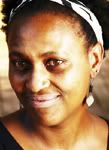Last Saturday, I was not feeling well and I decide to take it easy. I spent most of the day sitting on my couch reading. I reread The DaVinci Code for a teaching I had the following week and I also read Freakanomics by Stephen D. Levitt and Stephen J. Dubner. I liked Freakanomics so much that I included a portion of it in one of my teachings.
Levitt, an economist by profession, has a way of approaching life without pretence or supposition; the results are exciting and terrifying at the same time. He has a way of lifting up the curtain and revealing the Wizard of Oz for the fraud we see before us. The wizards he tackles in the book are the media, conventional wisdom, and assumption. Some people spend their lives trying to ignore the problems going on in the world, while others focus so much on personal crusades that they ignore and often bend information to support their beliefs. Levitt's background in economy empowered him to take a glaring look at crime reductions, drug-dealer's supposed wealth, cheating teachings, parenting and how the names we choose for our children effect status. In each case he shows what the numbers reveal, which usually proves that conventional wisdom and the media's spin are often under-researched and littered with well-meaning but misguided information assumed by most to be common knowledge. I guess Levitt encourages me to become a sceptic of what I hear, read and watch without becoming sceptical about reality.
It is for these reasons I included a portion of the book's introduction a teaching on how to read the newspaper and engage with media. I want students to seek out information but also realize that what they see is not always the "truth" or even though it may contain substantiated facts. In class, I posed the question, "What is the difference between morality and reality?" It kicked of debate and questions. Ultimately, we landed at Levitt's conclusions that morality is how we want the world to be, where reality is how the world really is. It does not take an expert to see there is often a vast gulf between reality and morality whether from a political, religious or social perspective.
When we take information in its various forms, we often hear someone's "moralized" viewpoint or the presenter is trying to make us aware of the perils in the world because we are not maintaining a certain moral viewpoint. It is very easy to lose sight of the facts carefully woven into the minutiae and solicitations to see them from "Our" viewpoint. Reality can be a hard find when we ascribe to listening to only one side of the story. One has to fight hard to find reality while understanding the motivation behind the presentation of facts within a publication or watching the news.
It is good to take in information from different perspectives with discrimination. That is what the Berean's did in the bible when people shared with them about Christ because they were seeking truth. I want my students to continually to sift through the information they take in, not just swallow it whole and regurgitate it to others. I want them to wrestle with what they experience until they get a peek behind the curtain and glimpse reality.
